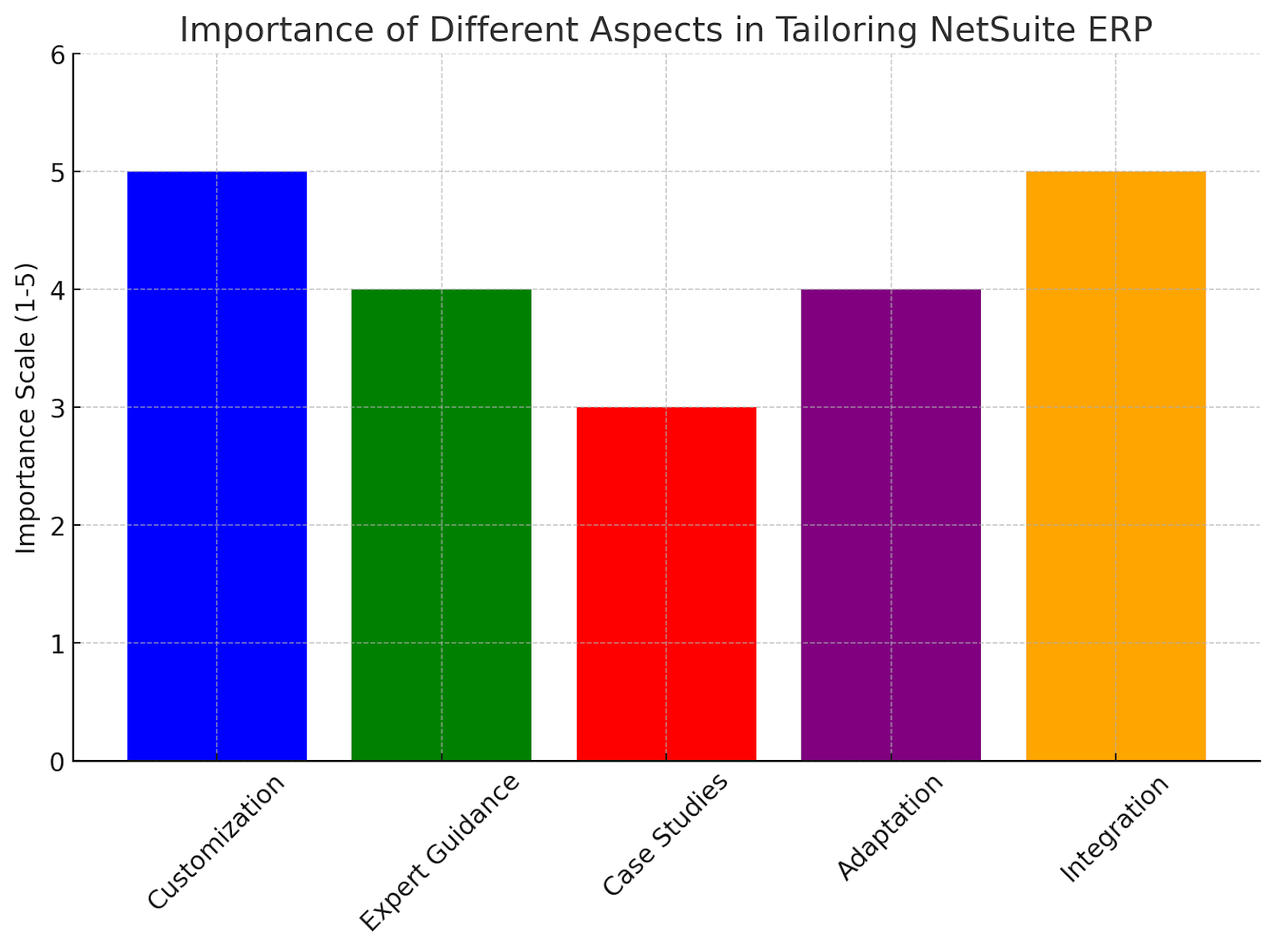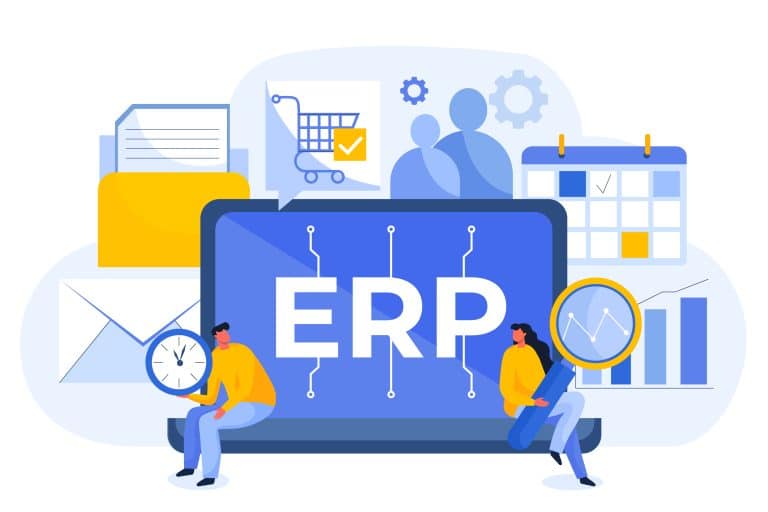Key Takeaways
| Aspect | Key Point |
| Customisation | Tailoring NetSuite ERP to meet specific industry requirements enhances efficiency and accuracy. |
| Industry-Specific Solutions | Identifying and implementing features relevant to each industry. |
| Strategic Consulting | Leveraging expert advice for optimal ERP utilisation. |
| Continuous Evolution | Adapting ERP systems to evolving industry trends and technologies. |
| Integration Capabilities | Seamless integration with existing tools and processes. |
| Case Studies | Learning from successful ERP implementations in various industries. |
The Enterprise Resource Planning (ERP) landscape is evolving rapidly, with New Zealand businesses seeking solutions that not only streamline operations but also cater to their unique industry needs.
NetSuite ERP, a robust cloud-based platform, is at the forefront of this transformation, offering tailor-made solutions for diverse industries. At Jcurve Solutions, our goal is to harness the full potential of NetSuite ERP to meet the specific demands of each business sector in New Zealand.
Customisation: The Heart of Industry-Specific ERP Solutions
The key to maximising the benefits of NetSuite ERP lies in its customisation capabilities. Every industry in New Zealand has its nuances, and a one-size-fits-all approach rarely works.
For instance, the requirements of a manufacturing business in Auckland differ vastly from those of a retail company in Wellington. Tailoring NetSuite ERP involves tweaking its functionalities to enhance operational efficiency, streamline decision-making processes, and ensure compliance with New Zealand’s industry-specific regulations.
How can you customise an ERP system to fit a New Zealand business’s unique needs?
Customising an ERP system involves tailoring its functionalities to align with a New Zealand business’s specific operational processes, regulatory requirements, and industry standards. This can be achieved through modular design, configurable workflows, and by incorporating features specific to the New Zealand market.
Versatility of NetSuite ERP: Adapting Across Industries in New Zealand
NetSuite ERP stands out for its adaptability, effectively catering to distinct industries like retail and manufacturing.
In New Zealand’s retail sector, it enhances customer experiences and inventory management, vital for maintaining competitive edge and customer satisfaction. For manufacturers, it streamlines production processes and optimises supply chain management, crucial for efficiency and cost control in New Zealand’s competitive market. This flexibility allows businesses across various sectors in New Zealand to utilise NetSuite ERP to address their specific needs, demonstrating its capability to adapt and deliver industry-specific solutions while maintaining a unified system.
Leveraging Expertise for Strategic Implementation in New Zealand
Implementing an ERP system is a significant undertaking, and the role of expert guidance cannot be overstated. Why ERP Implementations Fail and How to Succeed delves into the common pitfalls and strategies for successful ERP implementation. It highlights the importance of partnering with seasoned consultants who understand the intricacies of your industry in New Zealand and can guide the customisation process effectively.
How do New Zealand’s industry-specific needs impact ERP implementation?
New Zealand’s industry-specific needs significantly shape the implementation strategy of an ERP system. They determine the choice of modules, the extent of customisation required, and the need for integration with existing systems commonly used in New Zealand. Understanding these unique requirements ensures the ERP solution efficiently addresses the specific challenges and opportunities of industries in the New Zealand market.
Case Studies: Learning from Diverse Industry Implementations in New Zealand
Understanding the impact of a tailored ERP solution is best illustrated through real-life applications. Case studies of businesses across various sectors in New Zealand, from healthcare to e-commerce, provide valuable insights into how NetSuite ERP can be adapted to meet specific industry challenges in the local market.
Whole Kids, an Australian organic kids’ snack brand, is a stellar example of how NetSuite ERP, tailored by Jcurve Solutions, can revolutionise a retail business. Facing challenges typical to the retail sector, such as inventory management and market expansion, Whole Kids leveraged NetSuite ERP’s cloud-based capabilities. This strategic move enabled them to manage complex supply chains, increase operational efficiency, and build a robust brand presence. Similar success stories can be found in the New Zealand market.
For tailored NetSuite ERP solutions that meet your New Zealand industry-specific needs, consult with Jcurve Solutions today and discover how their expertise can transform your business.
Continuous Adaptation: Staying Ahead in New Zealand’s Dynamic Business Environment
The business world in New Zealand is constantly evolving, with new technologies and market trends emerging regularly. An effective ERP system must not only meet current industry standards but also be adaptable to future changes. This involves regular updates, integrating new features, and staying abreast of technological advancements to ensure that your ERP solution remains relevant and efficient in the New Zealand context.
New Zealand organisations are increasingly adopting cloud ERP platforms for easier, “low-code” customisation, driven by the need to offer personalised customer experiences. This includes integrating AI-based interfaces like chatbots for enhanced interaction, reflecting a trend towards industry-specific ERP solutions for improved effectiveness and efficiency in the New Zealand market.
Seamless Integration with Existing Systems in New Zealand
A major challenge in ERP implementation is ensuring seamless integration with existing business processes and tools commonly used in New Zealand.
How Long Does ERP Implementation Take and When Is the Worst Time addresses the timeline and considerations for integrating an ERP system into your New Zealand business.
Tailoring NetSuite ERP involves not just customising its features but also ensuring it works harmoniously with your current systems in New Zealand, thereby minimising disruption and maximising efficiency.

Strategic Aspects of Customising NetSuite ERP for New Zealand’s Industry-Specific Needs
The journey of customising NetSuite ERP to fit the unique requirements of different industries in New Zealand involves more than just technical adjustments. It’s a strategic initiative that encompasses understanding local industry trends, anticipating future needs, and aligning the ERP system with the business’s long-term goals in the New Zealand market.
Understanding New Zealand’s Industry-Specific Trends and Challenges
Each industry in New Zealand faces its own set of challenges and trends. For instance, the retail sector might prioritize customer experience and inventory management, while the manufacturing industry might focus on supply chain efficiency and production planning. A deep understanding of these nuances specific to the New Zealand market is crucial for tailoring an ERP solution that not only addresses current needs but also anticipates future industry-specific challenges.
Anticipating Future Needs and Technologies in New Zealand
In New Zealand’s fast-paced business world, being proactive is key. This means the ERP system should not only solve current problems but also have the capacity to adapt to future technological advancements. This could include integrating with emerging technologies like AI and IoT or adapting to new regulatory requirements in New Zealand.
Aligning ERP with Business Goals in New Zealand
The ultimate aim of customising an ERP solution like NetSuite is to align it with the New Zealand business’s broader goals. Whether it’s scaling operations, entering new markets in New Zealand or globally, or enhancing customer satisfaction, the ERP system should be a tool that propels the business towards these objectives.
Training and Change Management for New Zealand Businesses
Implementing a new ERP system, or tailoring an existing one, involves significant changes in how a New Zealand business operates. Effective training and change management are essential to ensure that the staff in New Zealand can utilise the full potential of the customised ERP system. This involves not just technical training but also helping the New Zealand team understand the benefits and changes in their workflow.
Measuring Success and ROI for New Zealand Businesses
Finally, measuring the success of the ERP customisation is vital for New Zealand businesses. This includes evaluating the return on investment (ROI), assessing improvements in operational efficiency, and analysing the impact on customer satisfaction in the New Zealand market. These metrics help in understanding the effectiveness of the customisation and guide further refinements.
Final Words
Tailoring NetSuite ERP to meet the unique needs of different industries in New Zealand is a comprehensive process that goes beyond mere technical adjustments. It involves a strategic approach encompassing understanding local industry trends, anticipating future needs, aligning with business goals, managing change effectively, and measuring success in the New Zealand context. With this approach, New Zealand businesses can leverage NetSuite ERP to achieve a competitive edge in their respective industries.










